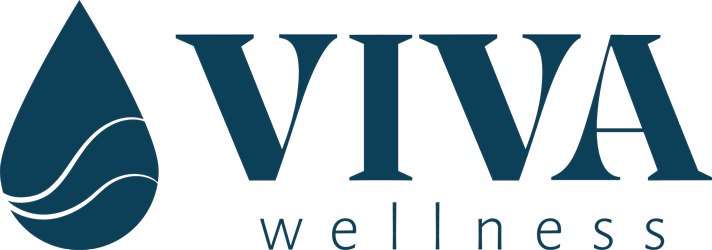We covered the basics of intermittent fasting in What Does Fasting Do for the Body? the first post of the series, including what’s taking place in the body and how it’s effective for weight loss and healing, and below we’re talking about types of fasting. One thing to note, and something that we encourage all to consider when they’re navigating their wellness journey, is to approach with curiosity, open-mindedness, and not place judgments on the capabilities of your body’s innate wisdom. For many, fasting is much more of a mentally challenging and habit-tempting experience than a truly physically taxing one, so it may make sense to have some mental/emotional support on hand if you feel like this could challenge you in that way.
Yes, fasting is one of the ways where we can come back to allowing the body do the things it knows how to do, BUT if you are experiencing issues that require medical intervention, definitely have a conversation with your medical/health advisors before considering attempting any change. If you want guidance implementing a weight loss, wellness, or fasting protocol, please first touch base with your provider or reach out to our staff.
Time Restricted Eating
Generally speaking, everyone is already participating in this form of fasting. The time we spend sleeping is, by default, a fasting window. Simply put, fasting is any period of time that we spend without eating or drinking caloric beverages. The average person’s eating window is about 14 hours per day, which means that on average, we spend about 10 hours fasting. If you typically wake up and drink coffee with sugar and creamer, the fast has been broken. The last moment of the day that we eat marks the end of our eating window.
When using time-restricted eating as an approach to health goals, we see benefits heighten with a fasting window of at least 14 hours. Ideally, fasting windows range between 14 to 20 hours, with calories being consumed during the remaining 4-8 hours of the day.
Prolonged Fasting
This typically refers to fasting durations lasting 24-72 hours. There are some fasting gurus who will discuss or promote fasting durations that extend beyond this, but this time frame is typically the longest that we will recommend. When fasts extend beyond this time frame, there are risks associated with refeeding that must be closely monitored and guided by a medical professional. For the sake of mitigating extensive risks that can be associated with longer durations of fasts, we will not supervise or encourage fasts that extend past 72 hours except when fast-mimicking strategies (such as Prolon) are in use.
Fast Mimicking Diet–Prolon
Prolon was developed by researcher Dr. Volter Longo, who has dedicated his entire scientific career to studying the impacts of fasting on the body. His studies on fast-mimicking diets revealed profound fasting benefits when subjects were fed a specific balance of macronutrients within a very low caloric range. This opened up opportunities to utilize fasting techniques with a wider audience, including those who were intolerant to water-only fasts due to hunger, emotional cravings, or insulin resistance. Prolon is well-researched, effective, and has significant benefits on visceral fat loss (abdominal fat that is associated with higher risks of diabetes, cardiovascular, and liver disease), cancer risk reduction, and improved insulin sensitivity.
Each Prolon fast is designed to support five days of “fasting,” on a reduced-calorie diet that allows the body to experience all of the above-mentioned benefits without having to avoid food entirely. Each day is pre-packaged, comes with instructions and timelines for meals, and provides structure for those who like to have guidance. If your goal is weight loss, you can safely complete one fast (5 days each) per month for 3 consecutive months. This series of 3 fasts can be repeated every 6-12 months. For those interested in completing Prolon fasts for the additional health benefits but do not need to focus on weight loss, it is recommended that fasts are completed once every 3 months.
Learn more and get a discount code to order Prolon direct.
What Can I Consume When Fasting?
For the purist, water-only fasts are the cleanest fast. Fortunately, if you are a coffee or tea consumer, unsweetened and plain coffee or tea is totally acceptable and has been shown to accelerate fasting benefits. Green tea, which is FULL of phytonutrients, has the added benefit of being a potent antioxidant, which has a serious impact on the cellular repair processes that you are already supporting through your fast.
Beyond these few items, essentially nothing is permitted while fasting. It’s not meant to be restrictive out of punishment, but your main goal is to avoid ANY digestive enzyme or insulin response as this will activate our digestive processes and potentially disrupt the time-dependent processes in action.
We do always recommend that your fasts are supported by appropriate water intake (at least half your body weight in fluid ounces, likely more when fasting), and scientifically backed electrolyte replacements with the appropriate sodium, potassium, and magnesium balance. It is so important that you select an electrolyte replacement formula that is not sweetened (even if it’s stevia) or full of additives. My favorite electrolyte replacement is LMNT, which contains no sweeteners, tastes great, and is super clean. Plus, it is impeccably balanced. You may be taken aback by the sodium content, but I must urge you to push past that knee-jerk reaction and remember that you are taking no other sodium in while fasting! This will make all the difference when it comes to intravascular hydration and symptom prevention.
Now you may be wondering if fasting is really the right thing for you, and while we’d love for you to open this conversation with your medical providers, there are a few other things to keep in mind that we’ll be sharing in the third post in the series.
If you’re curious and want to explore this topic with our team, book a consultation with our Nurse Practitioners today!
